Motwane, on the movies — from Udaan (2010) to Jubilee (2023), both near-masterpieces!
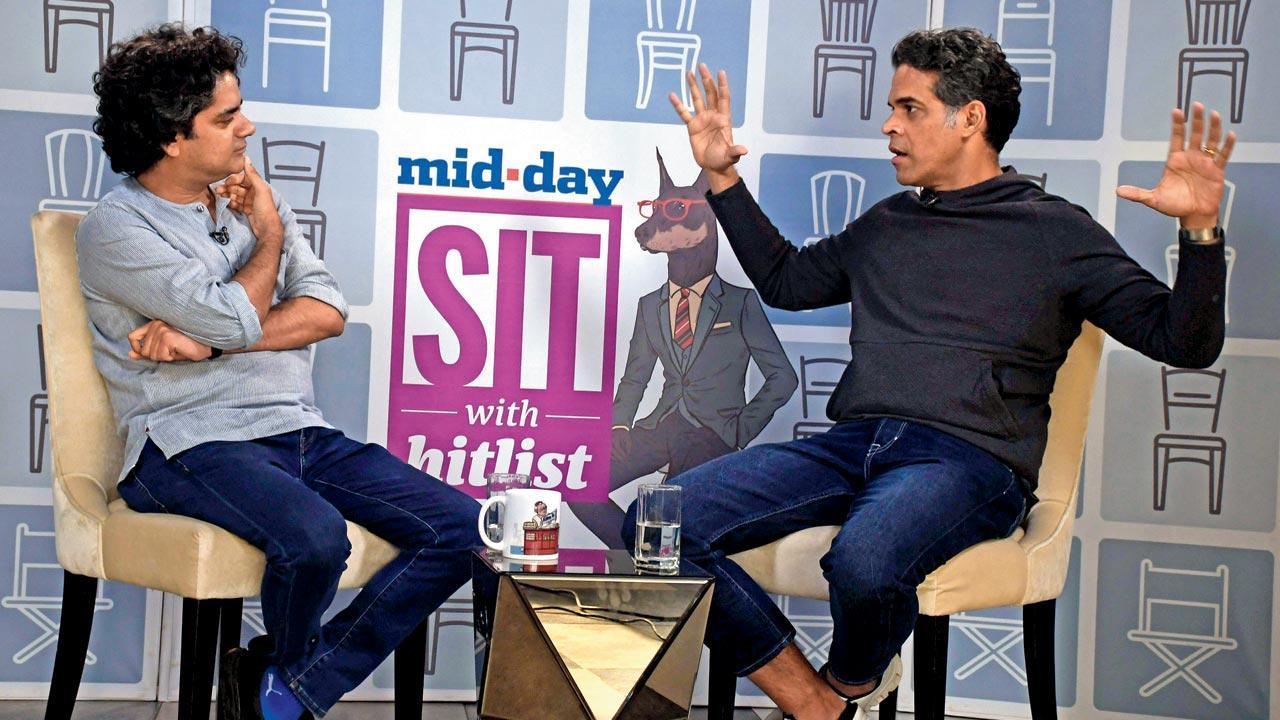
Vikramaditya Motwane joins Hitlist editor Mayank Shekhar for the latest edition of Sit with Hitlist. Pics/Ashish Raje
 At age 25, Vikramaditya Motwane was set to direct Amitabh Bachchan for his debut film, Bombay Talkies. It’s about a great filmmaker making his return to the sets after years. And what all had changed about Hindi cinema, including stardom, in the interim. Bachchan was going to play this aged director — think of him as Hrishikesh Mukherjee, who was alive then, he says.
At age 25, Vikramaditya Motwane was set to direct Amitabh Bachchan for his debut film, Bombay Talkies. It’s about a great filmmaker making his return to the sets after years. And what all had changed about Hindi cinema, including stardom, in the interim. Bachchan was going to play this aged director — think of him as Hrishikesh Mukherjee, who was alive then, he says.
ADVERTISEMENT
The star in the movie, I’m guessing, would have been an arrogant, prick type. Motwane found it impossible to cast a lead actor for this part. Which is why the film never got made. Until then, Motwane had extensively assisted Sanjay Leela Bhansali. Which, firstly, explains the access to Bachchan.
We only wondered about it because of the title, Bombay Talkies. Which is what his latest series, on Amazon Prime Video, Jubilee, is modelled on. Namely, Himanshu Rai’s (Prosenjit Chatterjee) state-of-the-art film studio in the 1940s, along with Devika Rani (Aditi Rao Hydari), down in Malad, in Bombay.
And which once had in its payroll stars like Ashok Kumar (Aparshakti Khurana), Raj Kapoor (Sidhant Gupta), Dilip Kumar, Madhubala… All these characters have been heavily fictionalised, of course. And Jubilee itself has no relation to that Bachchan script.
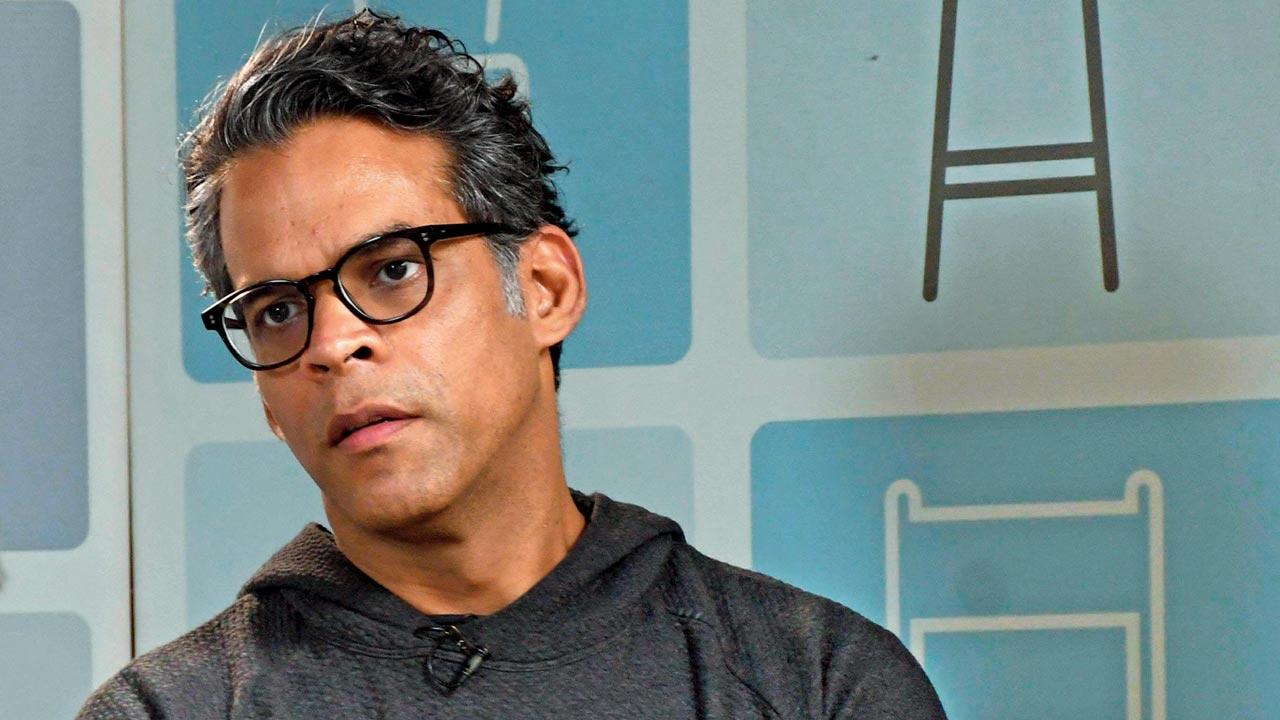
It’s actually a mammoth exercise in world-building, without the filmmaker getting overawed by it — sticking to drama and storytelling still. While so classical in its production design and shot-taking, it isn’t placed wholly inside a filmy bubble either. So many such films/series consciously tend to be — including the best ones, like The Offer (on the making of The Godfather), or Mank (on Citizen Kane).
It isn’t full of the usual exaggerations that naturally come with surveying showbiz either — take the best film on contemporary Bollywood, Luck By Chance, for instance.
Jubilee captures the real world around it, equally. Whether that be the bloody Partition, or the Cold War. Once you buy into this world — and it takes a while, perhaps fourth episode onwards — we know no other Indian series that progressively gets better with every minute. It may even age better with time!
Also, it’s to do with the dialogue. Compare it to Mira Nair’s A Suitable Boy, from the same time-setting. It sounds so coy, because they’re too obsessed with the period. Motwane says, “We wanted the language to be accessible. The language may not be completely correct to the period. But it’s not incorrect.
 Stills from Udaan (2010)
Stills from Udaan (2010)
“No one can point out and say, people needn’t speak like that. In fact, somebody’s criticism, which was actually funny was, ‘Gaaliyaan uss waqt kab hoti thi (When did people use expletives so much?)’ Gaaliyaan picture mein nahi hoti thi (Actors didn’t abuse on screen).
“That doesn’t mean people in real life weren’t abusing. Of course, they were.” For all its grandiose scale and sharp, layered storytelling, you come off Jubilee, exhaling, “Madan Kumar, behn****!” Isn’t it?
Motwane recalls the idea really took off in 2016: “What if we did our own definitive story of the Indian film industry, from the ’40s and ’50s onwards — the behind-the-scenes, the producers, directors, actors, press, all that sort of stuff coming together.
“This could be a season, or multiple seasons. Atul [Sabharwal] wrote a cracking pilot, Amazon loved it, and suddenly we were off in the races.” It took seven years to see the light, because Motwane got busy with Sacred Games for Netflix, shortly thereafter.
If Jubilee does go through multiple seasons, leading up to Bombay cinema, late ’90s onwards as well, there will be few filmmakers more qualified to relive the times than Motwane.
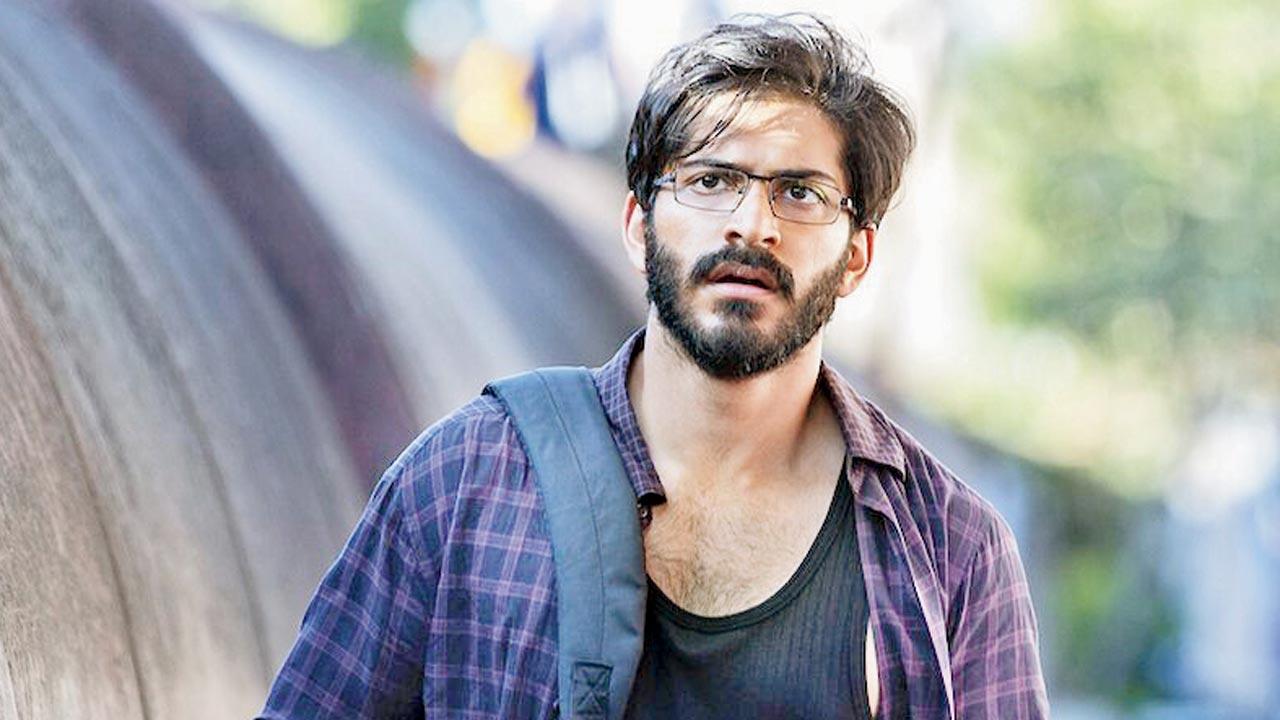 Bhavesh Joshi Superhero (2018)
Bhavesh Joshi Superhero (2018)
On one end is Bhansali, who he was the chief handyman for, on Hum Dil De Chuke Sanam (1999), and Devdas (2002), that he represented at Cannes, along with the director. At the other end is filmmaker Anurag Kashyap, who he’s partnered with since the unreleased Paanch. There aren’t more separate filmy worlds that you could belong to simultaneously in Bombay!
Bhansali and Motwane’s mother once ran an advertising production house together. He first met Kashyap on the sets of Deepa Mehta’s Water, where his job as the “wrangler” was to ensure the procrastinator Kashyap, as all writers are, delivers dialogues on time — not an easy task!
“Anurag’s wife, [editor] Arti [Bajaj], his ex-wife now, was with me at XIC [Xavier Institute of Communications], when we were doing a film production course in 1994-95. Anurag had done the same course a year before that. He says I met him then. I have no recollection of this.”
Also, few directors own a CV as varied as Motwane’s — so far as filmmaking departments go. What all has he been credited for? Let’s start: Sound design? “Yes, for Devdas, and Paanch.” Choreography?
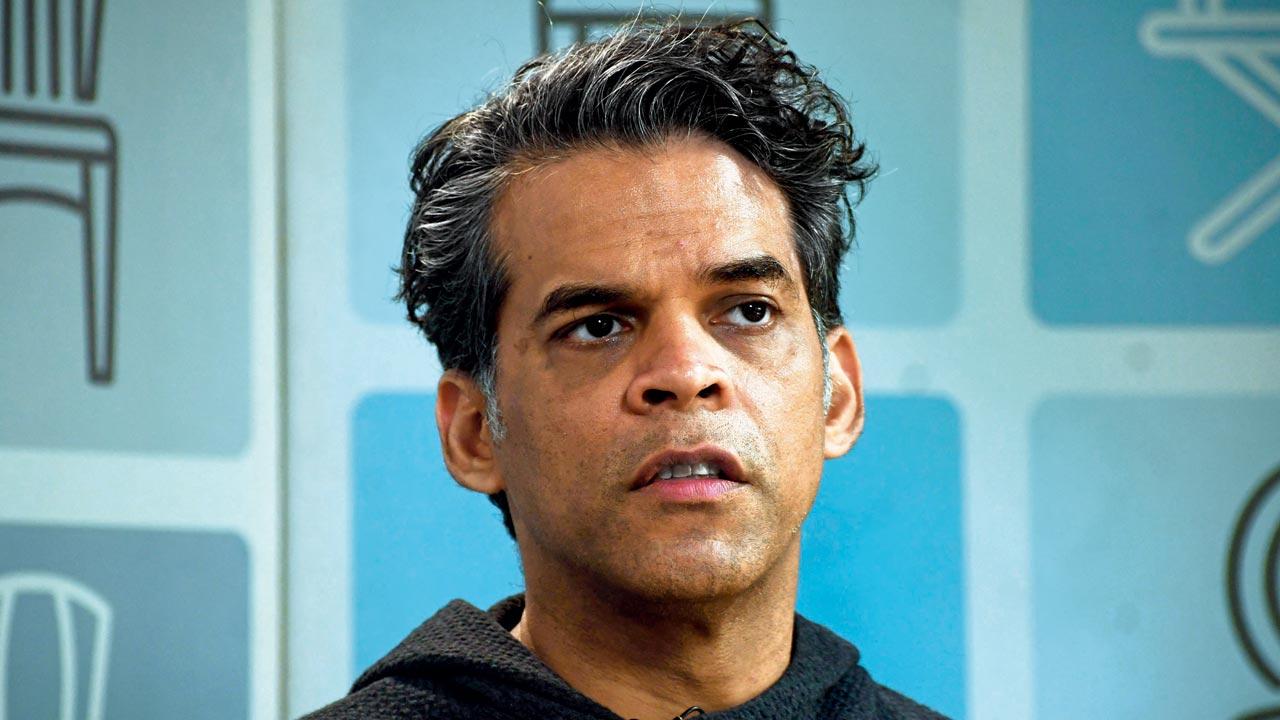
“Directed songs for Paanch. For Water as well. Well, choreography is a broad term. Because there was no dancing in Water. Deepa wanted me to help her with songs, because she felt I had a better music sense.” Acquired from Bhansali, one’s guessing.
Okay, cinematography? “Short films: Shaanu Taxi, Midnight Lost and Found.” How about acting? “Acting in cameos in certain places, which I am not very proud of.” Like, Kashyap’s No Smoking (2007)? “Yeah, everybody sees me in No Smoking!” What’s left, production design? “No, I don’t like that part.”
Yet, in terms of capturing the fuller gamut of Bollywood, his most uncanny credit might well be as the writer of a film by director Vivek Agnihotri, titled Dhan Dhana Dhan Goal (2007).
No, seriously, how did that happen?
“So, UTV was producing this film. Vivek had approached them. He said he had this story idea about football. He wanted a really good writer. They called up Anurag, who said he doesn’t know anything about football. But he knows this guy, who knows everything about football. So, they approached me. I have loved this game since I was eight years old. I said, let me write you an original script instead.” What, they gave him a DVD to rip? “Something like that!” Something like that, as in?
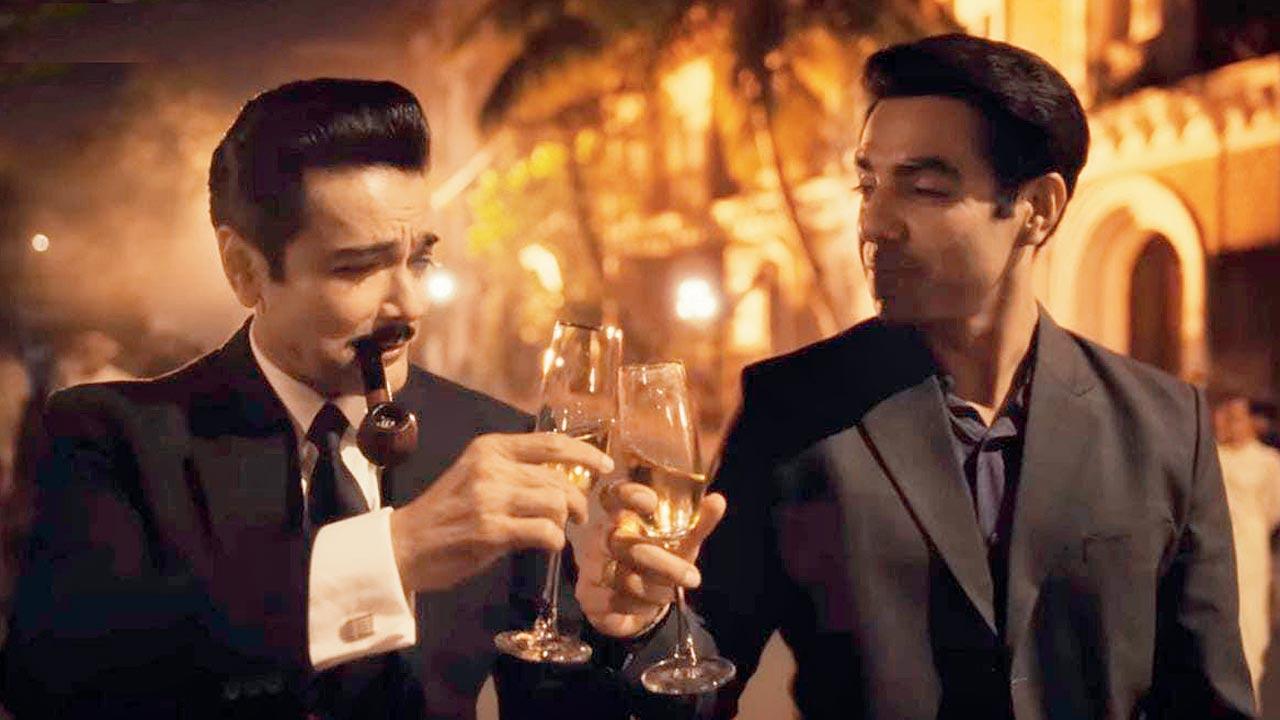 The music for Jubilee was composed by Amit Trivedi, and Kausar Munir wrote the lyrics
The music for Jubilee was composed by Amit Trivedi, and Kausar Munir wrote the lyrics
“So, well, I wrote the script. But the film that got made was not exactly the way that Anurag and me, to put it mildly, kind of wanted. I liked the time though. Beggars can’t be choosers. We got paid for the work, and that was more important than anything else. I still believe the original script of mine is one of the best things I have written.”
Motwane’s first script to be made into a film, after Bombay Talkies got aborted, of course, was the near-masterpiece, coming-of-age, Udaan (2010), that went straight to Cannes in the prestigious Un Certain Regard section, where he was competing against, among others, Jean Luc Goddard: “That was really trippy!”
It’s set in Jamshedpur (now in Jharkhand), about a boy who finishes school with ambitions in arts and poetry, but is forced into the mundane, by a disciplinarian father, who brooks no dissent.
It’s almost the opposite of Motwane’s own life, since he was actually driven into the media world, because his mother needed help with a TV show she was producing for teenagers. He was a teenager then, chilling all day in the Mithibai College canteen.
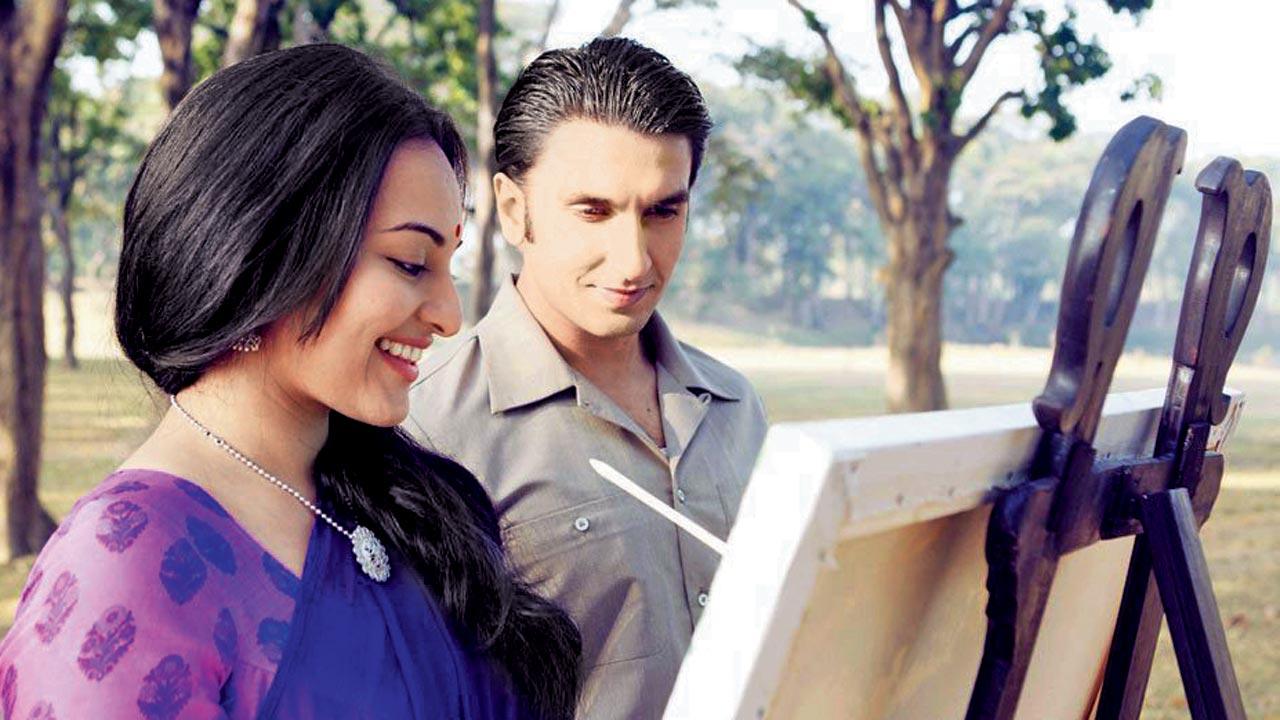 Lootera is Vikramaditya Motwane’s second film after Udaan
Lootera is Vikramaditya Motwane’s second film after Udaan
What did he even know of a strict boarding-school or small-town life, let alone the Tata Steel township, Jamshedpur, to get it so right with Udaan, we wonder. Motwane says Udaan was originally set in Nashik, in his head, because that’s a similarly industrial, small-town he knew, since his father owns an audio-equipment factory there.
“They live in nice little bungalows. The town is very organised. So, I wrote it as a generic place, in fact. Because I knew that world. I could not write in Nashik. It’d be too close to home. And I didn’t want it to be that. So, I wrote it like a Ghaziabad or Faridabad kinda set-up — outskirts of Delhi, where the family lives. The boy sneaks out, comes into Delhi-proper, to party and stuff.”
And then he handed the script to director Imtiaz Ali: “Imtiaz read the script and he’s like, ‘You know what, just take a train, go stay with my family in Jamshedpur. Have a look. I am reading this, and I can see those streets.’ I was going to cast Imtiaz’s younger brother, Sajid, in the lead, at that time. This was 2005.
“Sajid and I hopped on to a train, went to Jamshedpur, spent four to five days with his family, saw the place — this was perfect! I moved the film to Jamshedpur. The film finally got made in 2009, which is also great, because by then, the viewership had changed; audiences had changed. In 2005, multiplexes were still not what they were by 2010, when we did the film with UTV, with a 225-screen release, which is a big deal for a small film.”
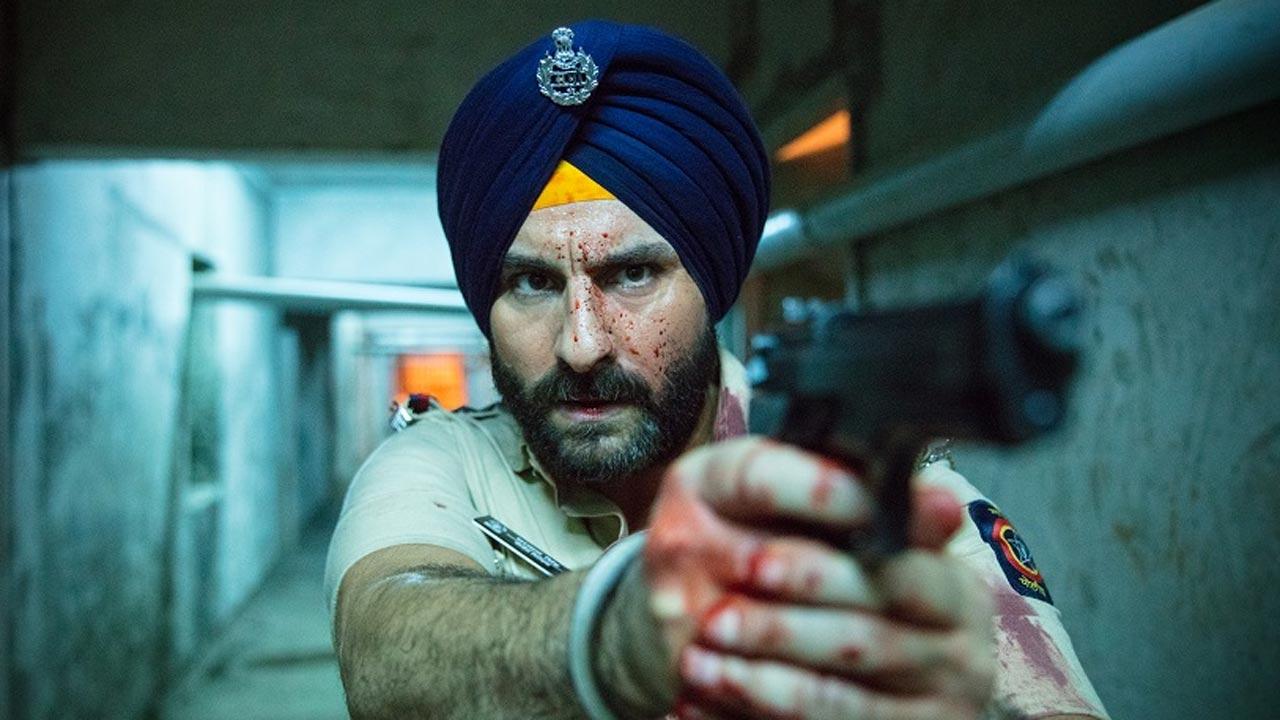 A still from Sacred Games
A still from Sacred Games
Kashyap produced Udaan, post the commercial success of DevD (2009). This also means the original lead actor, Imtiaz’s brother Sajid, would have passed his teenage by then. Young Rajat Barmecha was brought in for the Holden Caulfied type protagonist. The homework Motwane gave him was “the literature I’d read growing up, movies I’d watched — 400 Blows, Richard Price’s books, and a lot of things that come into Catcher in the Rye…”
The directorial career that Motwane scripted for himself after Udaan is indisputably marked by a range that’s hard to match — going from a period piece (Lootera) to super-hero (Bhavesh Joshi Superhero), a one-man survivor drama, set in a building, suggesting the dystopia of cities (Trapped), to the ultimate Mumbai-mafia sweeping-epic (Sacred Games), that he was the showrunner for — first Indian to hold that title (in case Limca Book of Records is interested in listing!).
The leaps are so wide that it piques your interest to know what inspired each film, since none suggest self-expression alone. Firstly, where the heck did AK vs AK (2020) come from — a meta movie that firstly defies genre, about a director and actor playing themselves. The director turns rogue, kidnaps the actor’s daughter, to film in real-time, what happens next! Wut?
“It’s just such a great one-line idea. Which is what excites you most. As a young filmmaker, you fight the fact that the idea of your film should be encapsulated into one, single line. As you grow older, you realise that one, single line is what drives you forward. Writer Avinash Sampat, who’s now become a good friend of mine, sent the script to us. He’d written it for Aamir [Khan] first. I was sure Aamir is never gonna do it, so let’s not even try!
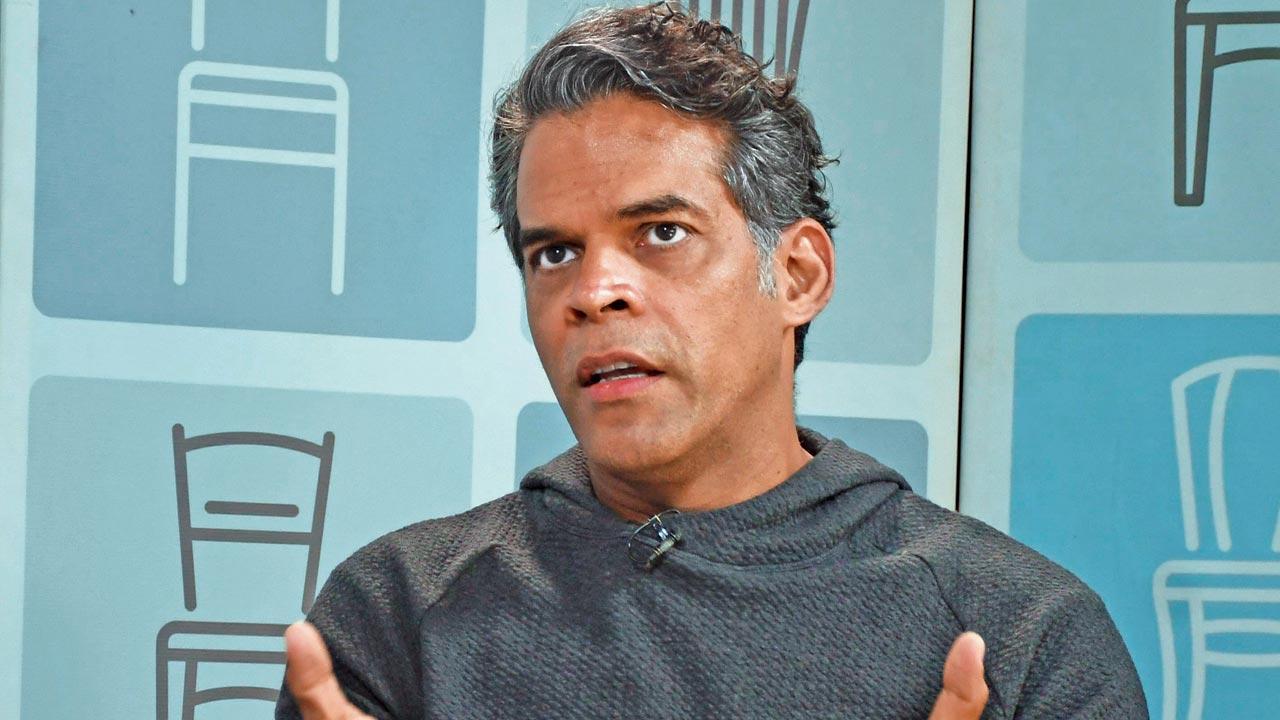
“There is Akshay Kumar, who we did approach, and it was a very interesting meeting — I mean, he didn’t sort of outrightly say, ‘Get out of my office,’ but it was close enough! For a while, I was making it with Shahid [Kapoor], which kind of happened, and then it didn’t. The [actor] AKs kept changing. The [director] AK, that is Anurag Kashyap, was a constant. He’s a fantastic actor.”
Well, Kashyap says he sucks at acting! “I think he is fab. In fact, everybody on the AK set was talking about Anil Kapoor. I think Anurag, especially in the last scene, is incredible. You actually tear up, when shit happens to him.”
Okay, how about Lootera? It’s practically a Bengali film! “Practically. And that [part is all Satyajit] Ray. I wanted to do a thriller, with a love story in it, as opposed to a tragic love story. Our first trailer got it right. And then there became a problem with the pitching to the audience. People were expecting to watch this epic love story. And they probably went, ‘Hang on a second, this is not that!’”
Also Read: Sharmila Tagore: Yash was a live wire, full of Punjabi endearments
Maybe because he plays with such diverse subjects —you sense that probably puts Motwane in a more objective position to judge his own work in hindsight — most think of their films as so much like their heart’s outpouring, that it’s hard to discuss it with them, without fawning over with delight. Consider Motwane’s take on Bhavesh Joshi Superhero (2018).
While he loves the film the way it is, immensely, he says, “I’ve never said this publicly, but I think Bhavesh should have been a woman. As in, Siku’s character should have been female. [Firstly] the world thinks there’s a guy, who turns out to be a girl. When she unmasks, you go, ‘What the f***.
“Also, then the film is not about a friend, saving a friend, in terms of the Ashish Verma character. He is actually deeply in love [with the female superhero], but has never been able to tell [her that]. The conflict is way deeper. The layers get more interesting too.”
As for reasons for smoothly jumping styles and genres, where each Motwane movie is unrecognisable from the other — unlike a subtle or strong voice/style that laces through most auteurs; think Bhansali, Kashyap — the impetus is quite simple.
“It’s the excitement of trying something new. So, Jubilee is exciting, because it is something I have never done before — a classical style of storytelling, 10 playback songs, and all that stuff — the fact of telling a specific story, in the form that is most suited to it. I feel that the film is always the boss. I am not.”
Motwane says his forthcoming film is titled Control. It’s a ‘computer-generated’ movie, flitting between screens, centred on an Instagram influencer: “Again, it is a cyber thriller, it is new. I get excited by it. And you learn. Every film is an audition for the next one, having learnt from the last one!” That said, surely, if one looks deep enough, they’ll be able to spot a personal thread.
Take Jubilee, for that matter. Consider a character called Jotwani, a film businessman, who shows up in it. It’s unclear exactly what he does in the movies. Maybe there is some association with working with sound or audio equipment. That’s precisely what his paternal family dealt with.
If you go through any archival footage of public rallies of politicians from the ’50s, or pre-independence vintage, the most common brand-name you’ll notice is Chicago Radio, that’s attached to the microphone.
That company was started by Motwane’s great grandfather. His grandfather thereafter also once produced a film: “It was called Andolan, in 1949, with young Kishore Kumar in the lead. It was a film about the freedom struggle. It didn’t do well, which is why nobody in the family talks about it. Because I think the family lost a lot of money on it.”
You also see the Sindhi refugee camp in Jubilee. Given his own Sindhi lineage, we wonder if there is a personal history to it as well? “So, my family didn’t have to make their way during Partition. We were already here from the 1930s.
“The business was already set up. But for a while, my family house in Khar was a refugee camp. I have seen photographs. People were also demarcated into tents in garden-area or permanent structures, depending on the social status of the refugees.”
Motwane says he learnt of his family’s film lineage, only much after he became a filmmaker: “Nobody tells me anything! Now, I’m the family archivist.” He’s named his production company, Andolan, after his grandfather’s maiden and only production.
AK vs AK and Jubilee are Andolan productions. Of course, the more famous production company he’s been associated with is Phantom Films, which shut down, following allegations of negligence, dealing with a sexual harassment case against one of the partners, Vikas Bahl, in 2017. Prior to that, it was a company rolling out quality films after another.
We recall an interview about Phantom, where Motwane compared it to Pixar, in terms of credibility and ambition: “Very ambitious! Peak-Phantom was something else. Eventually, we would have all perhaps gone our own ways, anyway. Maybe running our own companies under the umbrella of Phantom as the larger studio. It was an unfortunate end to what was a good journey.
“Interestingly enough, I actually met Tanmay Bhat and Rohan [Joshi] and we were talking about how peak-AIB and peak-Phantom happened at the same time. Some great stuff went down.” The comedy collective, All India Bakchod, similar to Phantom, folded up, following a #MeToo storm.
Is there anything that Motwane thinks they could have done differently over the workplace sexual harassment issue? “Externally, we could have [handled it better]. But again, this is in hindsight. If you’re going through something you haven’t before, you may not know how to handle it. From a professional, empathetic and personal point of view — I am saying all three — we could have done better.”
While this is obviously the first time Motwane has been on Sit with Hitlist, our long-form conversational series, it does occur to me that he’s regularly mentioned in chats with other guests. With Kashyap, of course.
The last one was with actor Abhay Deol. As it turns out, Motwane and Deol were buddies in school: “He used to invite us over to his house to watch movies.” Isn’t that a close enough Bollywood connection for someone who claims to have grown up far removed from showbiz in general, with no practical understanding or ambition to enter films as such?
“But it’s a movie star’s house, ya. That way, Abhishek Bachchan used to be in my school [Jamnabai Narsee] for a couple of years. His cousin Namrata is a close friend. I have been to Abhishek’s birthday parties in Madh Island, where [Amitabh] Bachchan made an appearance. This is peak-Bachchan, in 1984. You are seeing the hero of your dreams, standing in front of you!
“He’d come off the set, wearing boots. We hero-worshipped him, and I’d gone to Dharmendra’s house to watch movies. There used to be a badminton court. Maybe it’s still there. We were like, wow, Dharmendra plays baddy here!”
As for Abhay: “It’s when he returned from LA that we became close. Because when he came back, we shared an interest in the same kind of music and movies. We were hanging together, and writing some stuff together.
“We worked together on [the script of] DevD, and on a couple of things before that. I was actually in the room, when Imtiaz [Ali] narrated to him Socha Na Tha [his debut film]. So, yeah, that historical moment happened in my presence! We have tried a couple of times [to work together] and then it just has never happened, and then we have sort of given up.”
The other time Motwane figured similarly, in conversation, was with Saif Ali Khan, who was rather salty, we have to say. He wholly trashed the second season of Sacred Games altogether — speaking about how a friend and him had popped a champagne to catch it together at home. A little later, they just shut off the frickin’ TV. Rather harsh!
“But that’s Saif. You can’t hold a grudge against things he says. He speaks his mind. That is exactly the way he is. I totally love him for that. You can say things back to him, and he will take it. He respects that. We respect him.”
That said, Sacred Games season one (S01), that Motwane put together for Netflix, based on Vikram Chandra’s tome of the same name, was incredibly received. While Netflix seldom shares its viewership numbers, they were quick to point out that two out of three viewers of Sacred Games came from outside India — making it truly the first Indian global show.
What one noticed was the sheer audacity of the characters. Again, the world-building. And just the use of uninhibited, uncensored visuals, language, grime, grit, and the madness of Nawazuddin Siddiqui’s Gaitonde, opposite the vulnerability of Saif’s Ali Khan’s Sartaj.
And then, whatever happened to Sacred Games in the second season — the thriller lost its sheen, veering into spaces so separate from the first. For all the criticism its way, it was hardly the ghastly season it was made out to be. Just not close enough to the first.
Motwane admits, “I think what happened with Sacred Games is that on S01, we had the luxury of time. Once Netflix said, okay, fine, we are going to do it — we got about a year to write the stuff, before starting shoot. I just wanted to do it without any assistance. I wanted to create a writers’ room, come together, make it without having to say, ‘Oh let’s get some firangi to come in and guide us on how to do this, because we’ve never done it before!’
“What happened on S02 was that we had to turn it around in 12 months! So, while I was almost in the middle of shooting [S01], there is already the idea [that you have to start to work] on what to do with S02.
“While I was on post-production, the writing was actually happening. By the time I’m free to be able to get far deeper into [the writing of] S02, it’s too late for me to make my presence felt.
Also Read: Kareena Kapoor Khan turns photographer for hubby Saif Ali Khan, enjoys a romantic evening with him
“In the way that I wanted to make it felt. Which is not to say [there’s] anything wrong with the writing. It’s just that, okay, it’s not mine. It has gone in a different way from what I would have done.” Time, Motwane says, is what he had the luxury of, with Jubilee (2023; seven years). As with Udaan, of course (2010; five years).
 Subscribe today by clicking the link and stay updated with the latest news!" Click here!
Subscribe today by clicking the link and stay updated with the latest news!" Click here!







